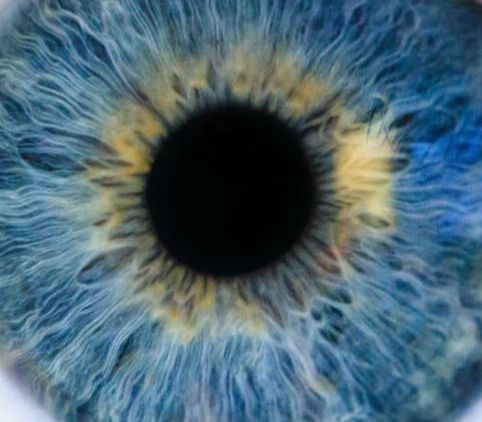- About
- Introduction
-
Browse the book
-
All the pages alphabetically
>
- A >
- B >
- C >
- D >
- E >
- F >
- G >
- H >
- I >
- L >
-
M
>
- Main theories of power
- Making an effort is a prerequisite of using power
- Marxism and the meaning of power
- "May" power
- Meanings of power that are not directly related to social power
- Micropower: Individual power
- Mindfulness
- Media and Digital Literacy as Forms of Individual Power
- (Mis)understanding of power in media texts
- Money and Power
- My synesthetic perception of "power"
- N >
- P >
- R >
- S >
- T >
- U >
- V >
- W >
- Completed pages
-
All the pages alphabetically
>
- Author
Power Is Not a Thing
(completed pages might be rewritten over time)
First of all, you may ask, "Who says that power is a thing?", and also "What does it even mean to be or not to be a thing?" In fact, the word "thing" has a slew of definitions. It can refer to an object ("things in my purse"), an abstract concept ("this crazy thing called love"); an affair (from French à faire "to do", as in "I have so many things to do"), a situation ("you should just look at things differently"), an event ("meeting you was the best thing in my life"), an accomplishment ("I want to do great things"), and more. "Thing" is a considerably vague multipurpose word that we use all the time but find incredibly hard to define; so is "power". So, why is power not a thing?
First of all, you may ask, "Who says that power is a thing?", and also "What does it even mean to be or not to be a thing?" In fact, the word "thing" has a slew of definitions. It can refer to an object ("things in my purse"), an abstract concept ("this crazy thing called love"); an affair (from French à faire "to do", as in "I have so many things to do"), a situation ("you should just look at things differently"), an event ("meeting you was the best thing in my life"), an accomplishment ("I want to do great things"), and more. "Thing" is a considerably vague multipurpose word that we use all the time but find incredibly hard to define; so is "power". So, why is power not a thing?
Image credit: Miguel Á. Padriñán
I believe that, of all the meanings of the word "thing", the one that best fits the widespread perception of power is this: "an object or entity not precisely designated or capable of being designated". On one hand, power is something vague, so "not precisely designated" fits well. On the other hand, we can say that people usually see power as something related to themselves, but distinct from themselves. Think about such phrases as "have power", "use power", "abuse power", "give power", "take power", "lose power" and "discover power". Therefore, "an object or entity" also seems to describe power well. But appearances are notoriously deceptive.
In my book Media Is Us, I explain that it is not uncommon for people to simplify complex aspects of their own existence (like media) and separate them from their own actions in order to be able to make some sense of them. Unlike media, power is seen as something that we can possess ("have power"), lack, use/abuse, and even share with others ("give power"). At the same time, like media, power is perceived as something not unlike an entity or an object, which the language we use to talk about it suggests.
While it is not wrong to say that a person can have or lack power (as a combination of abilities and influences), it would be a mistake to limit ourselves with this understanding. A step in the right direction, in my opinion, would be to say that the "relationship" between people and power works both ways: individuals have power < > power has individuals. Since the italicized statement will probably sound like a confusing paradox – or even like utter nonsense – to most readers, a useful modification could be, power works through individuals. This modification echoes the view proposed by Foucault, who argued that power is not simply possessed by (some) individuals. Power cannot be owned or used in the sense that we traditionally accept. Moreover, according to Foucault's enigmatic statement: "Power is everywhere... it comes from everywhere" (Foucault, 1976, p. 93).
I believe that, of all the meanings of the word "thing", the one that best fits the widespread perception of power is this: "an object or entity not precisely designated or capable of being designated". On one hand, power is something vague, so "not precisely designated" fits well. On the other hand, we can say that people usually see power as something related to themselves, but distinct from themselves. Think about such phrases as "have power", "use power", "abuse power", "give power", "take power", "lose power" and "discover power". Therefore, "an object or entity" also seems to describe power well. But appearances are notoriously deceptive.
In my book Media Is Us, I explain that it is not uncommon for people to simplify complex aspects of their own existence (like media) and separate them from their own actions in order to be able to make some sense of them. Unlike media, power is seen as something that we can possess ("have power"), lack, use/abuse, and even share with others ("give power"). At the same time, like media, power is perceived as something not unlike an entity or an object, which the language we use to talk about it suggests.
While it is not wrong to say that a person can have or lack power (as a combination of abilities and influences), it would be a mistake to limit ourselves with this understanding. A step in the right direction, in my opinion, would be to say that the "relationship" between people and power works both ways: individuals have power < > power has individuals. Since the italicized statement will probably sound like a confusing paradox – or even like utter nonsense – to most readers, a useful modification could be, power works through individuals. This modification echoes the view proposed by Foucault, who argued that power is not simply possessed by (some) individuals. Power cannot be owned or used in the sense that we traditionally accept. Moreover, according to Foucault's enigmatic statement: "Power is everywhere... it comes from everywhere" (Foucault, 1976, p. 93).
Image credit: Michael Morse [edited]
Even Foucault's view, which, in my opinion, brings us significantly closer to understanding power, still contributes to the perception of power as a thing. Power remains an "it", even as "it comes from everywhere". This is not a criticism of Foucault, but merely another proof of the fact that language makes it very hard to discuss and make sense of human/social complexity. In fact, my own formulations "power has individuals" and "power works through individuals" are no better in this sense, as they still present power as a vague entity that can act upon us.
So, if power is not a thing, what is it, then? I believe that it would be more correct to talk about power as an aspect of being human, as an aspect of all human relationships. Since it is dispersed through society, the only way to get closer to comprehending power is to analyze its forms and manifestations. In the process, I will need to rely of language, which is not well suited for the task.
Although I know that defining something through negatives is not ideal, under the circumstances I believe that "power is not a thing" is a good start. It allows us to wonder what being "not a thing" might mean, and this is what my theory of micro- and macropower is meant to clarify. Talking about power is, indeed, a challenge. But this challenge is a good reminder that we cannot let ourselves be too comfortable when trying to get to the bottom of it. Analyzing power and speaking about it requires simplification. However, we should always remember that simplification meant to clarify complex aspects of society often becomes incorporated into meanings of the very "things" that we are trying to understand, contributing to the unhelpful view that these "things" are not so complex after all.
SOURCES:
Foucault, M. (1976). The History of Sexuality. Vol. 1, The Will to Knowledge, trans. R. Hurley. Penguin, 1998.
Merriam-Webster. (n.d.). Thing. https://www.merriam-webster.com/dictionary/thing
Even Foucault's view, which, in my opinion, brings us significantly closer to understanding power, still contributes to the perception of power as a thing. Power remains an "it", even as "it comes from everywhere". This is not a criticism of Foucault, but merely another proof of the fact that language makes it very hard to discuss and make sense of human/social complexity. In fact, my own formulations "power has individuals" and "power works through individuals" are no better in this sense, as they still present power as a vague entity that can act upon us.
So, if power is not a thing, what is it, then? I believe that it would be more correct to talk about power as an aspect of being human, as an aspect of all human relationships. Since it is dispersed through society, the only way to get closer to comprehending power is to analyze its forms and manifestations. In the process, I will need to rely of language, which is not well suited for the task.
Although I know that defining something through negatives is not ideal, under the circumstances I believe that "power is not a thing" is a good start. It allows us to wonder what being "not a thing" might mean, and this is what my theory of micro- and macropower is meant to clarify. Talking about power is, indeed, a challenge. But this challenge is a good reminder that we cannot let ourselves be too comfortable when trying to get to the bottom of it. Analyzing power and speaking about it requires simplification. However, we should always remember that simplification meant to clarify complex aspects of society often becomes incorporated into meanings of the very "things" that we are trying to understand, contributing to the unhelpful view that these "things" are not so complex after all.
SOURCES:
Foucault, M. (1976). The History of Sexuality. Vol. 1, The Will to Knowledge, trans. R. Hurley. Penguin, 1998.
Merriam-Webster. (n.d.). Thing. https://www.merriam-webster.com/dictionary/thing
If you are interested in getting updates about this project (e.g., when new pages are published), please sign up for the newsletter on my main website.
THIS WEBSITE CONTAINS NO AI-GENERATED CONTENT
- About
- Introduction
-
Browse the book
-
All the pages alphabetically
>
- A >
- B >
- C >
- D >
- E >
- F >
- G >
- H >
- I >
- L >
-
M
>
- Main theories of power
- Making an effort is a prerequisite of using power
- Marxism and the meaning of power
- "May" power
- Meanings of power that are not directly related to social power
- Micropower: Individual power
- Mindfulness
- Media and Digital Literacy as Forms of Individual Power
- (Mis)understanding of power in media texts
- Money and Power
- My synesthetic perception of "power"
- N >
- P >
- R >
- S >
- T >
- U >
- V >
- W >
- Completed pages
-
All the pages alphabetically
>
- Author

